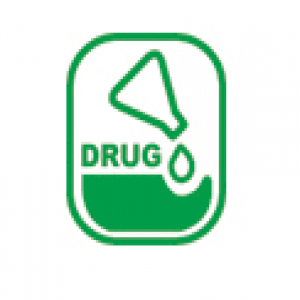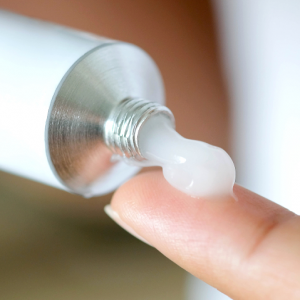 Welcome
Welcome
“May all be happy, may all be healed, may all be at peace and may no one ever suffer."
Drug International Ltd.

Trialon 0.10%

Generic for Diseases
- Atopic eczema
- Inflammatory skin disorders
- Insect stings
- Vitiligo
Triamcinolone Acetonide (a derivative of Triamcinolone) in a compatible base. Topical steroids are primarily effective because of their anti-inflammatory, antipruritic & vasoconstrictive actions.
Indications is indicated for the relief of the inflammatory and pruritic manifestations of corticosteroid responsive dermatoses including atopic dermatitis, contact dermatitis, eczematous dermatitis, neurodermatitis, seborrheic dermatitis, insect bites, lichen simplex chronicus, exfoliative dermatitis, stasis dermatitis, nummular eczema, psoriasis and pruritus ani and vulvae.
A small amount of Triamcinolone is gently rub to the affected area 1-2 times daily. Some cases of eczematised psoriasis may be treated more effectively by the application of Triamcinolone under an occlusive dressing.
Occlusive dressing technique: Gently rub a small amount of Triamcinolone on the lesion until it disappears. Then reapply, leaving a thin coating and cover with a pliable non porous film. For convenience apply Triamcinolone intermittently (12 hour occlusion during the night) followed by reapplication without occlusion, during the day.
Pediatric use: Triamcinolone should not be used in children under 8 years. Administration of topical corticosteroids to children should be limited to the least amount compatible with an effective therapeutic regimen. Chronic corticosteroid therapy may interfere with the growth and development of children. As children are more likely to get side effects, they should not normally be treated for longer than 5 days.
Triamcinolone Acetonide is contraindicated in those patients with a history of hypersensitivity to any of the components of the preparation. It is also contraindicated in tuberculosis of the skin, fungus infections and viral diseases of the skin (Herpes simplex, chickenpox and vaccinia), perioral dermatitis, rosacea and ulcerative conditions.
The following local side effects have been reported with topical corticosteroids, either with or without occlusive dressings: burning, itching, irritation, dryness, folliculitis, hypertrichosis, acneiform eruptions, hypopigmentation, perioral dermatitis and allergic contact dermatitis, maceration of the skin, secondary infection, skin atrophy, striae and miliaria.
Overdose Effects
Topically applied corticosteroids can be absorbed in sufficient amounts to produce systemic effects e.g., mild, reversible suppression of adrenal function, ecchymoses of the skin, peptic ulceration, hypertension, aggravation of infection, hirsutism, acne, edema and muscle weakness
If reactions or idiosyncrasies are encountered, Triamcinolone Acetonide should be discontinued. The use of topical steroids on infected areas should be attended with caution and careful observation, bearing in mind the potential spreading of infections by anti-inflammatory steroids and the possible advisability of discontinuing steroid therapy and/or initiating antibacterial measures.
Triamcinolone Acetonide should not be used on healthy skin or over large areas of skin and not to be used in the eye as there is potential risk of glaucoma and cataract. When steroids are applied for long periods of time (more than 4 weeks) the occurrence of atrophic striae is likely. Prolonged use on flexures and intertriginous areas is undesirable. Children may absorb proportionately larger amounts of topical corticosteroids and thus may be more susceptible to systemic toxicity. In infants, long term continuous topical steroid therapy should be avoided. Adrenal suppression can occur even without occlusion.
Pregnancy & Lactation
There are no adequate and well-controlled studies in pregnant women on teratogenic effects from topically applied corticosteroids. Therefore, topical corticosteroid should be used during pregnancy only if the potential benefit justifies the potential risk to the fetus. It is not known whether topical administration of corticosteroid could result in sufficient systemic absorption to produce detectable quantities in breast milk. Systemically administered corticosteroids are secreted into breast milk in quantities not likely to have a deleterious effect on the infant. Nevertheless, caution should be exercised when topical corticosteroids are administered to a nursing woman.
Trialon 0.10% and more Available Brands
Hopso-LP 90mg + 400...
Nidocard Retard 2.6mg
Cytogem 1gm / vial
Emparol 25mg
Oramet 500mg
Glucotin Plus 250mg + 20...
Block-T 500mg / 5m...
Niapid 500mg
...
To be happy, beautiful, healthy, wealthy, hale and long-lived stay with DM3S.